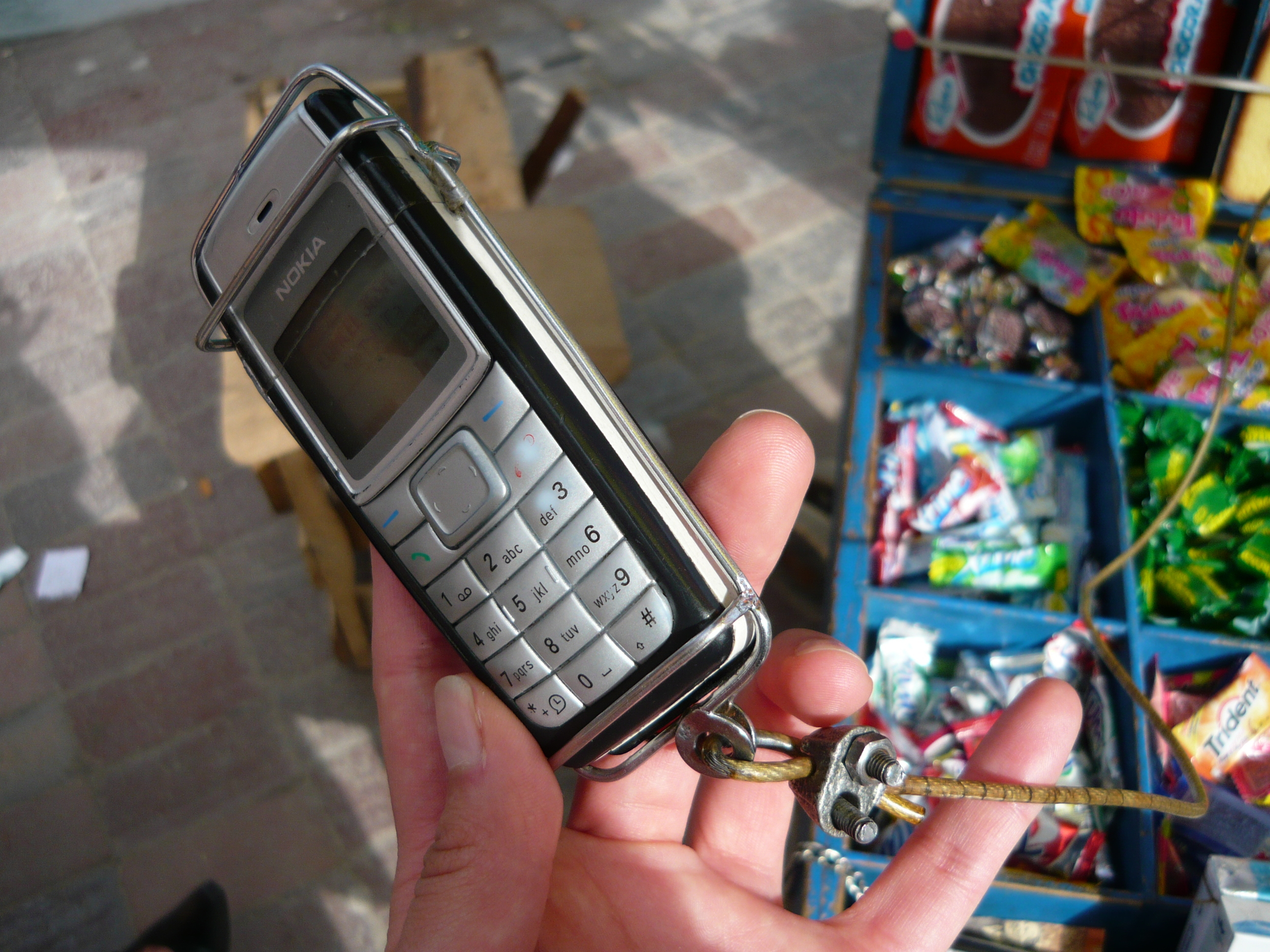BE A PARASITE
A well-known property of viruses, is their parasitic behavior. Since it isn't a real form of life, they need to parasitize one to exist. This is a very interesting tactic to be applied in technological contexts. There are many organisms out there that have the infrastructure and elements to make something. A symbiotic relationship in which a technology or infrastructure is used to offer a more suitable product or a complete different one can have very interesting outcomes. You don't have to reinvent the wheel to make a bike. So take advantage of what technology and infrastructures offer and develop over it.
Walking phone booths
For some years, in countries like Colombia or Kenya, an interesting parasitic service appeared. Not everybody could afford having a mobile phone and if they could, not everybody could have airtime in it to make calls. Responding to that, resellers of phone minutes appeared on the streets offering calls, charging per minute. They are called ‘Minuteros’ (something like Minute Guy) in Colombia. They stand on the streets in every corner of the city with fluorescent signs that say Minuto a 200 (Minutes for 200 pesos). They carry dozens of mobile phones tied with chains and lend them to you when you have to make a call. Many cities in Colombia are actually well covered with public phone booths but the service of the Minuteros beat them with cheaper prices and much more practical and fast solutions. Almost everybody has a mobile phone but not for making calls but rather receiving them. All of these manifestations are part of informal business people developed to survive crisis. They stand in grey zones between legality and illegality in which they take advantage of the service of mobile companies and resell it as single. Soon they developed a network of Minuteros that cover well the city and the country, something that banks, for example, couldn’t achieve in countries like Ghana or Kenya.
Ecosystem
People have access to mobile phones and want to be permanently connected, available, reachable or localizable. However, they are not able to afford a mobile plan and the prepaid alternative is still difficult to have it all of the time. Because of this situation, they use mobile phones not really for making calls but only for receiving them, as if it were a sort of a pager. Besides that, mobile companies charged a higher fee when the phones weren't from the same company.
NEED
People needed a convenient and cheap alternative to get connected to the mobile network. To be reachable by carrying a phone, but without needing to worry about charging your phone with airtime or paying at the end of the month the bill. They needed a convenient access to an infrastructure or service.
Dynamic
People started spontaneously reselling a service in a more convenient / almost tailor made way. They were reselling calling minutes for any mobile company phone from a range of own mobile phones. They were a network of walking phone booths that conveniently offered phone calls for the moment you needed one.
New Service / Outcome / Interaction
A Calling Service by Minute was achieved with a well covered network available anywhere at almost any time. Phone call minutes were offered on the streets as if they were small snacks like the other available products: candies and cigarettes.
New Meaning
Mobile calls weren't something you owned, had always there nor needed to worry about.
They were a Sweet Minute you could get on the streets anywhere.
Technology
Mobile Phones and Communication Networks

























